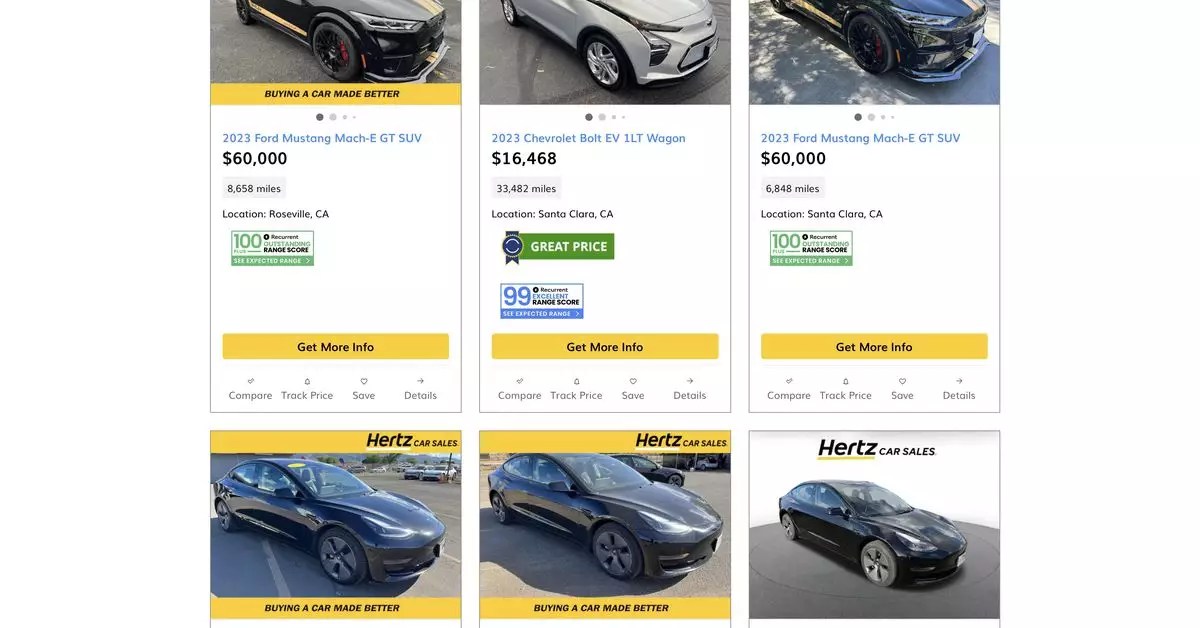Hertz, a leader in car rentals, has recently initiated an intriguing strategy that allows customers who rent electric vehicles (EVs) the chance to purchase the very cars they have been using. This development comes as an effort to boost sales while simultaneously managing its rental fleet of EVs more efficiently. In a move that could redefine the traditional rental experience, Hertz is now reaching out to renters of popular electric models such as Teslas, Chevy Bolts, and Polestar vehicles with enticing offers that are closely aligned with their current market prices.
Reports from various renters reveal interesting figures about the pricing Hertz is proposing. One notable example comes from a renter of a 2023 Model 3 who confidently shared their experience on social media. They were presented with a purchase option of $17,913, which interestingly mirrors existing prices for similar models on Hertz’s Car Sales website. Nonetheless, an important factor to consider is the mileage on the rental car; this particular vehicle had clocked nearly 30,000 miles— a bit higher than what’s commonly found in the market for used Teslas. This raises important questions about the valuation strategy of used rental cars.
Other EV renters have shared their experiences as well, including an offer for a 2023 Chevy Bolt priced at $18,442. Additionally, a Polestar 2 renter mentioned a purchase price of $28,500. While these figures may seem competitive, they prompt potential buyers to weigh the value of a rental vehicle—often utilized under various driving conditions—against the long-term investment of owning such vehicles.
Hertz is not merely promoting vehicle sales; they are also introducing safeguards for customers by providing a limited warranty. The cars being sold come with a 12-month, 12,000-mile powertrain warranty, offering some peace of mind to buyers frustrated by the potential drawbacks of purchasing a used rental. Furthermore, Hertz includes a seven-day buy-back option, allowing customers to reconsider their purchase—a strategic move that may entice hesitant buyers who are still weighing their options.
Despite Hertz’s renewed focus on EV sales, the company had previously announced a retreat from aggressive electrification plans due to underwhelming demand and repair issues experienced with certain models. Hertz’s communications director, Jamie Line, emphasized that the initiative to connect rental customers with sales opportunities is not a temporary gimmick, but rather a deliberate strategy to merge their rental and sales channels more effectively. This pivot could symbolize a more pragmatic approach for Hertz as they navigate the complexities of offering electric alternatives in a volatile market.
Hertz’s unique strategy to sell rental EVs serves dual purposes: catering to consumers wishing to transition into electric vehicle ownership while simultaneously reinvigorating their rental model. It is a fascinating development for those monitoring the ongoing evolution of both the rental and electric vehicle markets.


Leave a Reply